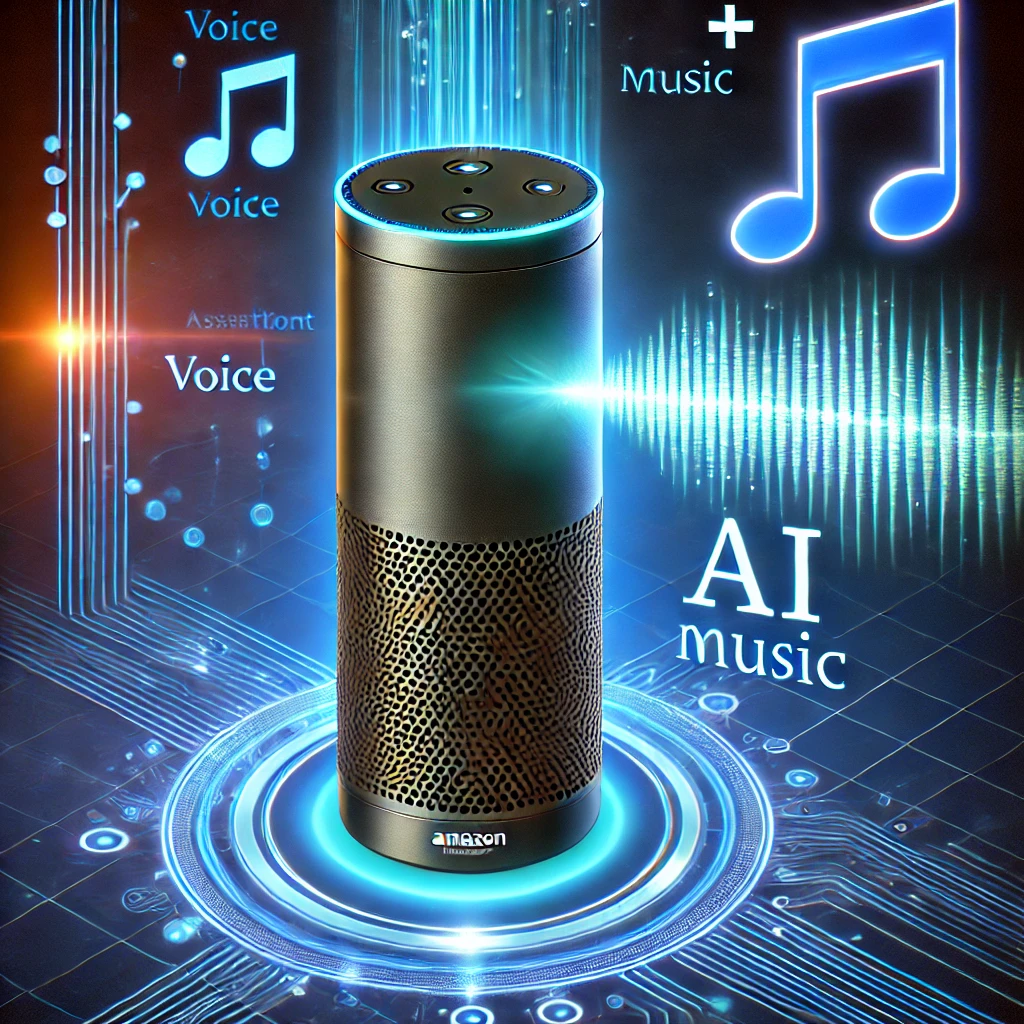The Introduction of Alexa+ and the Significance of Suno Integration
On February 26, 2024, Amazon announced its next-generation voice assistant, Alexa+. One of its most notable features is its AI-powered music generation capability. Particularly noteworthy is the integration of AI music generation services from the U.S. startup Suno, which allows users to create complete songs—including vocals, lyrics, and instrumentals—simply by inputting a voice prompt.
As AI technology continues to evolve, music generation has also made significant advancements. However, while this technological innovation fosters new creative possibilities, it also raises debates concerning copyright and artists’ rights. Suno, in particular, has faced lawsuits over alleged copyright infringement in the past, and its partnership with Amazon has sparked both praise and criticism.
Copyright Issues Surrounding Suno and Amazon’s Strategy
Suno has been sued by the Recording Industry Association of America (RIAA) and Germany’s music copyright organization (GEMA) for allegedly using copyrighted music as AI training data without authorization. In its response to the court last August, Suno nearly admitted to using copyrighted content from record labels. Despite these unresolved legal issues, the partnership with Amazon has moved forward, raising concerns.
Meanwhile, in December 2023, Amazon strengthened its partnership with Universal Music Group (UMG), announcing a joint initiative to combat “illegal AI-generated content.” At first glance, this move appears contradictory to Amazon’s collaboration with Suno. However, it can also be interpreted as Amazon’s effort to establish a legal AI music generation technology that can coexist with the music industry.
According to a Digital Music News report, Amazon did not inform its existing music partners about its collaboration with Suno in advance. If this claim is true, it could lead to potential rifts in Amazon’s relationship with the music industry.
The Future of AI-Generated Music and Its Impact on the Industry
The advancement of AI music technology opens new doors for creators. The ability to generate music from simple prompts significantly lowers the barrier to music production, allowing more people to engage in the creative process. However, since this technology fundamentally challenges the traditional framework of music creation, it is likely to have a profound impact on the industry as a whole.
- Impact on Creators
If AI music generation becomes mainstream, traditional composers and producers may see a decline in demand for their work. On the other hand, new creative expressions utilizing AI could emerge.
- Copyright Challenges
If AI-generated songs resemble past works, copyright disputes may arise. Particularly, if the training data includes copyrighted songs, responsibility for legal violations will become a key issue.
- Changes in the Music Market
The widespread adoption of AI composition tools may alter the perceived value of music. For instance, background music (BGM) for videos and games could become mass-produced by AI, changing the dynamics of the music industry.
Other Features of Alexa+ and Future Prospects
Beyond music generation, Alexa+ comes equipped with numerous other new features, including image generation, new voice filters, smart home controls, Uber booking, and integration with Ticketmaster. Amazon’s overarching goal appears to be enhancing everyday convenience through AI technology.
However, as the partnership with Suno remains controversial, a key question moving forward is how Amazon will navigate its relationship with the music industry. If Amazon successfully addresses copyright issues and fosters collaboration with artists and record labels, AI music technology could lead to an entirely new music market.
Conclusion: Expansion of Creativity or Industry Disruption?
Alexa+’s AI music generation feature has the potential to revolutionize music production. However, it also comes with significant challenges, including copyright concerns and shifts in the role of human creators. Much attention will be focused on how Amazon manages its relationship with the music industry and how its partnership with Suno evolves.
Ultimately, the hope is that AI music generation will not only serve as a technological breakthrough but also develop in a way that allows artists and AI to coexist and collaborate harmoniously.

